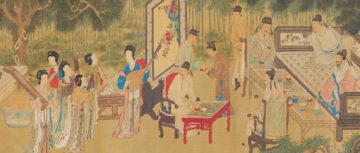Michael Hattem in Lapham’s Quarterly:
 In 1788, as the young republic was trying to establish itself under the new Constitution, Noah Webster wrote, “Americans, unshackle your minds, and act like independent beings…you have an empire to raise…and a national character to establish.” “To effect these great objects,” he continued, “it is necessary to frame a liberal plan of policy and build it on a broad system of education.” After the War of Independence ended, Webster published several best-selling readers and grammatical texts “calculated particularly for American schools.” These books incorporated many now-familiar stories from the United States’ colonial and revolutionary past, chosen for their “noble, just, and independent sentiments of liberty and patriotism” with the hope that education might “transfuse them into the breasts of the rising generation.” From the very beginnings of the United States, education, history, and patriotism have been fundamentally intertwined.
In 1788, as the young republic was trying to establish itself under the new Constitution, Noah Webster wrote, “Americans, unshackle your minds, and act like independent beings…you have an empire to raise…and a national character to establish.” “To effect these great objects,” he continued, “it is necessary to frame a liberal plan of policy and build it on a broad system of education.” After the War of Independence ended, Webster published several best-selling readers and grammatical texts “calculated particularly for American schools.” These books incorporated many now-familiar stories from the United States’ colonial and revolutionary past, chosen for their “noble, just, and independent sentiments of liberty and patriotism” with the hope that education might “transfuse them into the breasts of the rising generation.” From the very beginnings of the United States, education, history, and patriotism have been fundamentally intertwined.
Education in the United States underwent its first great expansion in the decades between the Revolution and the Civil War. The revolutionary generation had few models of public education. Until then, education had been limited almost entirely to elite white males, who were instructed in Latin and Greek (required for admission to college) at young ages in grammar schools.
More here.
